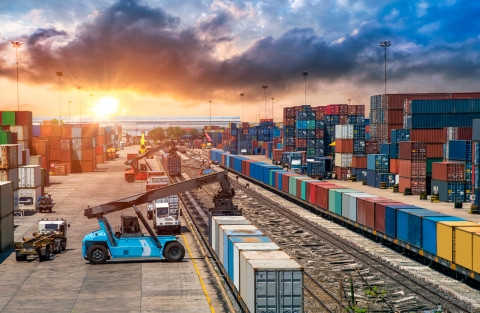European Economic
and Social Committee
Multimodal freight transport: let's make it happen!
Moving goods using a combination of water and land transportation will be easier in Europe as soon as problems affecting intermodality are solved. In the opinion drafted by Stefan Back and adopted at the July plenary session, the EESC notes that lack of interoperability and poor infrastructure have a major impact on the development of integrated freight transport, often leaving operators no choice other than to use road transport. This in turn has a negative knock-on effect on the environment.
Commenting on the adoption of the opinion, Mr Back pointed out that the EU needed a pragmatic, resource-efficient approach from a regulatory point of view: "We need to address the pending issues directly and solve them quickly. Multimodal transport and logistics must be efficient and sustainable, not more expensive, slower and less reliable than, in particular, unimodal road transport. A long-term viable solution cannot be built just by setting up a new dedicated regulatory framework or injecting new financial resources."
Currently, multimodal freight transport lacks efficiency and sustainability. Combining different modes of transport on water and land nowadays entails considerable expense due to transhipment and transaction costs, on top of disadvantages such as long delivery times, complexity, higher risk and less reliability. Given all of the above, multimodal transport is not at present very attractive. In order to play its full part in the transport system, multimodal transport must become competitive in its own right and achieve efficient and seamless flows at the same cost as unimodal transport. (mp)
